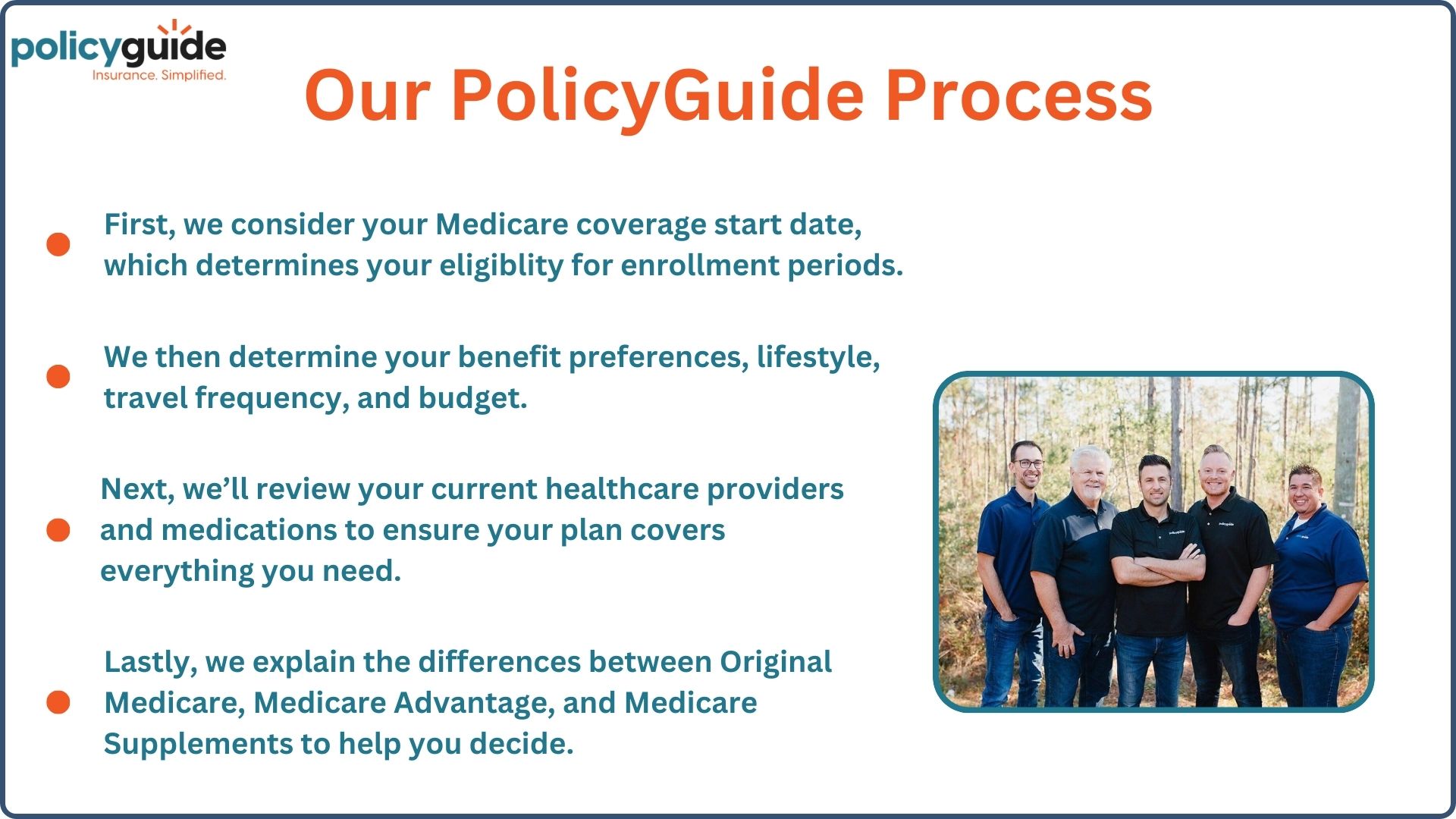Medicare Supplement Insurance Agents: Choose Wisely
Do I really need a Medicare insurance agent?
Having been licensed for over 20 years as an insurance agent, you’ll probably assume that my answer would be, “Yes, you need an agent.” However, not all agents are created equally; unfortunately, this industry has more bad than good apples.
In 2021, CMS received over 41,000 complaints about Medicare brokers, highlighting that many insurance brokers may prioritize quick commissions over client’s needs. Beneficiaries often feel overwhelmed when new to Medicare and can be easily pushed into buying a Medicare Advantage plan by a bad broker instead of being shown all of their options.
That tells you that a staggering number of Medicare agents are in the field and that CMS receives a very high number of complaints each year.
Our office receives many calls from frustrated clients of other agents, with concerns including:
- They can’t get ahold of their agent.
- They don’t know where their agent is.
- The agent won’t call them back.
- The agent put them in a plan that does not have all their doctors in the network.
- The agent put them in a plan that does not have all of their pharmacies covered.
So, let’s look at some of these tips I put together to help you decide whether the individual you want to work with is right for you.
Broker Bias
Beware of broker bias. Beware of brokers who attempt to push you into enrolling in a Medicare Advantage plan, especially if they don’t mention any other options. The other option is going to be a Medicare Supplement plan. It is startling how many agents never bring up Medicare Supplements. They only bring up Medicare Advantage – because the commissions pay more.
From the surface, Medicare Advantage plans look more appealing to Medicare beneficiaries because they usually have no monthly premiums and additional “free” benefits.
It’s very common for beneficiaries to get caught up in the idea of a no-premium plan and quickly lose sight of some of the core basics of a Medicare Advantage plan. It’s helpful to ask questions like:
- Are referrals required?
- Are my doctors in the network?
- Are my prescriptions covered?
- How do prior authorizations work?
Generally, agents won’t take the time to answer these questions. They are very quick to rush you into a Medicare Advantage plan.
The highest activity in the Medicare world occurs every year during the Annual Election Period (or Open Enrollment Period). A study found that 85% of Medicare ads during the Open Enrollment Period in 2023 were for Medicare Advantage plans.
The advertised benefits included low-cost, extra, or free benefits or getting money back for your Part B.
What you typically don’t see advertised are customer reviews, coverage restrictions, high out-of-pocket limits, limited networks, referrals, and prior authorizations.
It’s evident that the entire Medicare industry and all insurance companies predominantly market Medicare Advantage. You usually don’t see much advertisement for Medicare Supplement.
And that doesn’t make Medicare Supplement bad; it just means that the industry prefers Medicare Advantage because the company (and the agent) make more money than Medicare Supplement plans pay.
So you might ask, what are some signs of bad brokers?
Signs of Bad Brokers
Here are a few things that you can also look for – bad brokers may:
- Prioritize their commission pay.
- Rush you into a plan.
And here’s the one that I hear the most at my office:
- They disappear once you’ve bought a plan.
Also, they usually withhold important information, maybe because they think that will slow the sale down or because they’re inexperienced and don’t know what important information you need to make a decision.
Our office gets a lot of calls from people who say,
“My agent enrolled me in this plan last year. It’s a new year, and I need to make changes or decide if I need to change plans, and my agent won’t call me back.”
A good agent should enroll you in a plan based on fact-finding, but also, they should ALWAYS be available to you every year to do policy reviews or check in to see if you have questions.
If you’ve found the right broker, you should always be able to contact them with questions or concerns.
Finding the Right Broker
Let’s look at how to find the right broker or agent.
#1. Experience (this is a big one): Opt for a broker or agent with at least five years of experience.
Most agents get into this business, and it pays a commission per policy. The longer an agent is in this business, the more relaxed, professional, and organized they become. It’s a career and should be a long-term play that services the client, not a fly-by-night, desperate agent trying to make a sale.
#2. Credentials: Can you find the agent’s bio online to learn about their qualifications? Do they have a Gmail or generic email address?
Most established agents or agencies will have a well-established brand or name. And they won’t be using Gmail or Yahoo anymore. They’ll be bob@insuranceagency.com, for example. That just shows one extra step they took to focus on professionalism and care in how they are viewed by the public.
Other important credentials include:
What company do they work for?
Do they have client reviews that you can look over?
Have people used them before?
Is there any way you can track down information about them on Google or YouTube?
“Where are they?” is a big question. If you can’t find someone on YouTube or Google with just some basic searches, that’s a red flag to me – they should not be that hard to find if they are professionals in this industry.
#3. Clients: Ask how many clients the broker serves annually.
A reputable broker is going to have a large client base. It’s a career and a profession that they’re in. They will be around for a long time, which means that if they’ve been around a long time, that means that their client base builds because the clients are happy and stay with them, and more people are coming to them through advertising and referrals. Therefore, success can be based on a larger client base.
#4. Reviews: Seek feedback from previous clients. Positive reviews will support the broker’s reputation.
If you can’t find an agent’s experience, credentials, client base, or reviews, that is another red flag for me.
An agent needs to make money to pay their bills, so they tend to do desperate things, become pushy, and… get people enrolled so they can make money.
At Policy Guide, we take a totally different approach.
Our Policy Guide Process
First, we consider your Medicare coverage start date, which determines your eligibility for different enrollment periods. Our process is going to be very in-depth.
We then determine your benefit preferences, what type of plan you like, what plan you’ve used, and your lifestyle habits. We ask questions like:
- Do you travel?
- What’s your budget?
- What’s your health like?
- Do you have chronic health conditions requiring a more comprehensive plan?
- Do you mind staying within a network?
- Do you need dental insurance?
We try to put together a strategy that is not just, “Hey, we have a free Medicare Advantage plan. ” We look at what you are used to in the past and what you are comfortable with—whether it’s copays or deductibles, etc. A lot of things go into the client needs analysis to determine which plan is best for you.
And that is not based on which plan is best for us as the agent.
Next, we’ll review your current healthcare providers and medications to ensure your plan covers everything you need. If there are providers or prescriptions that a plan won’t cover, we will tell you that upfront. We will not hide that.
We’ve come across people all of the time who have five or six doctors.
We say, “we think this plan is a really good fit. Four out of the five doctors you use are in the network. This fifth one is not in the network.
Does that matter to you?
Is it someone you must maintain, or is it a doctor you haven’t seen in a long time?
Lastly, we’ll explain the differences between Original Medicare, Medicare Advantage, and Medicare Supplement plans to help you decide. It is a big value-add for an agent to take the time to explain the three different avenues that you have and not just focus on one like many are with the Medicare Advantage plans.
Final Thoughts
I hope this information was helpful and gives you some insights.
If you’d like to work with us, we’d be happy to help. Give us a call, and we will conduct a needs analysis to determine which plans are available in your county and may be the most suitable.
If you select a plan, you will have an ongoing service agent with us. So, if you have questions in a month, six months, or six years from now, you can always call us about any questions, concerns, or plan changes, and we will help determine if you’re still in the best situation.
Thanks!





